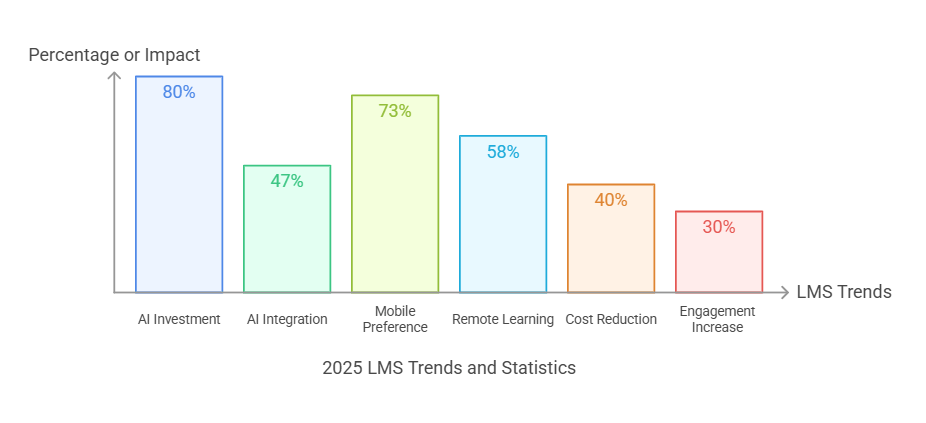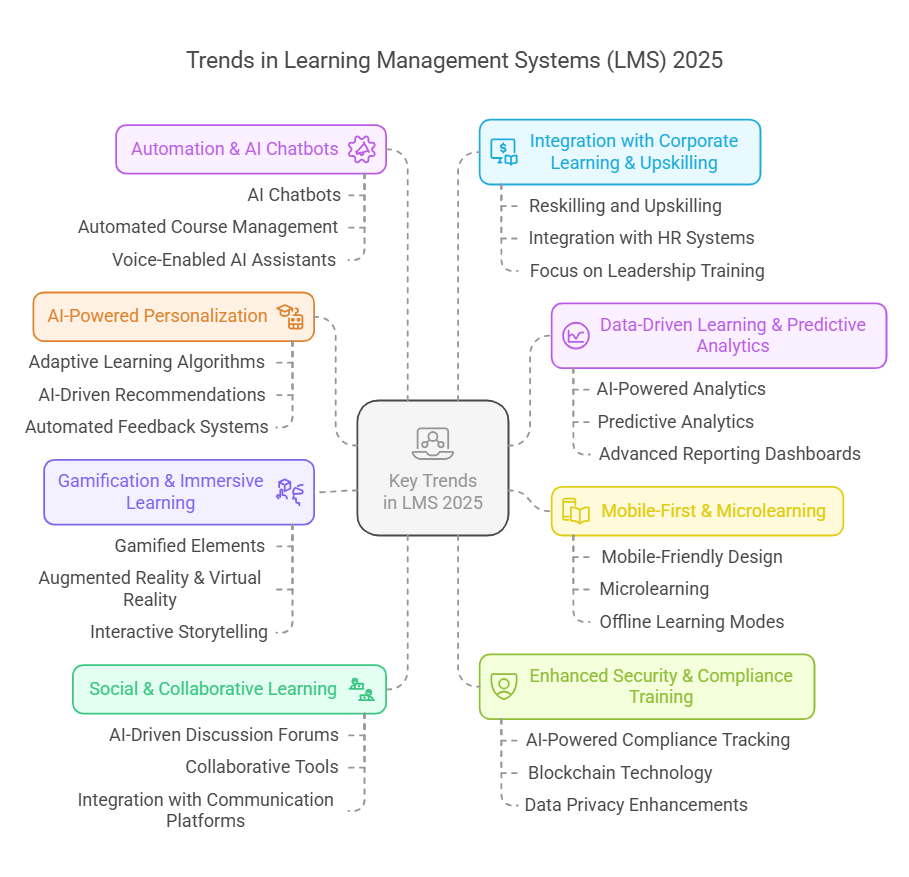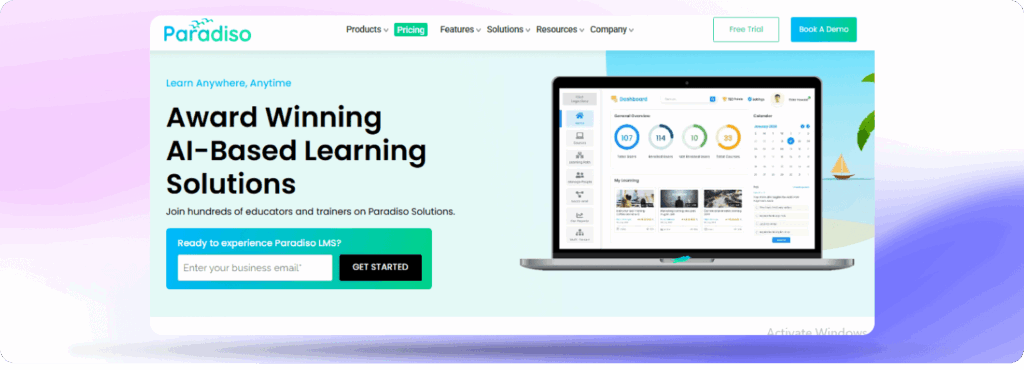
Get Started with Free LMS
Boost Skills and Performance at No Cost!
In today’s interconnected business environment, learning is no longer confined to internal teams alone. The concept of Extended Enterprise Learning has emerged as a powerful strategy that goes beyond traditional employee training, extending to partners, customers, distributors, and other key stakeholders. By offering learning opportunities to the entire business ecosystem, organizations can enhance product knowledge, ensure compliance, and boost brand consistency across multiple touchpoints.
Extended Enterprise Learning leverages Learning Management Systems (LMS) to deliver scalable, consistent, and easily accessible training to external audiences. This strategic approach not only strengthens partnerships but also drives customer satisfaction and loyalty by empowering users with the knowledge they need to succeed.
As organizations seek to remain competitive and innovative, extended enterprise learning is becoming a cornerstone for global growth and brand alignment. This guide explores the significance of extended enterprise LMS, its key benefits, and how it revolutionizes corporate learning for broader reach and impact.
Discover the world of Paradiso LMS, a standout in the extended enterprise learning landscape. This Learning Management System isn’t just for internal staff; it’s a versatile tool for training customers, partners, and more. Easy to use and packed with innovative features, Paradiso LMS is more than just a learning platform – it’s a growth catalyst for businesses and external networks alike. Let’s dive into how Paradiso LMS is making learning accessible and impactful for everyone involved.
Enterprise learning is a strategic approach to education and training within a corporate environment. It focuses on enhancing the skills and knowledge of employees, and aligning learning objectives with the overall goals of the organization. This type of learning extends beyond traditional employee training, encompassing a range of stakeholders including partners, customers, and suppliers.
By leveraging various tools and technologies, such as Learning Management Systems (LMS), enterprise learning facilitates continuous professional development, drives performance improvements, and helps maintain a competitive edge in the market.
Enterprise learning is pivotal for organizations seeking to thrive in a competitive and ever-evolving business landscape. It nurtures a skilled workforce, aligns employee development with organizational goals, and fosters a culture of continuous improvement and innovation. By investing in enterprise learning, companies can significantly enhance their operational efficiency, adaptability to market changes, and employee satisfaction, leading to increased productivity and business success.
Key reasons for implementing enterprise learning include:

Extended enterprise Learning goes beyond internal training, embracing external parties like partners, suppliers, and customers. It aligns everyone with the company’s goals, ensuring consistency and quality across all interactions. This strategy boosts collaboration and service quality and strengthens the brand and market presence, creating a knowledgeable and cohesive business ecosystem.
Extended enterprise training encompasses various types of training programs aimed at stakeholders outside the immediate organization. These programs are designed to ensure that external partners, customers, suppliers, and others aligned with the company are well-informed and skilled. Here are some key types of extended enterprise training:
With AI, predictive analytics, automation, and immersive technologies (AR/VR) becoming more prevalent, LMS platforms are transforming how organizations and educators deliver content. The demand for scalable, flexible, and AI-powered learning solutions is expected to rise significantly, making LMS a cornerstone of digital education and corporate training.

Access 100+ fully editable, SCORM-compatible courses featuring an integrated AI Tutor and an in-built authoring tool. Seamlessly compatible with any LMS, these courses are designed to elevate your training programs.
Explore Course CatalogImplementing extended enterprise learning involves a series of strategic steps to ensure that external stakeholders are effectively trained and aligned with your organization’s goals and standards. Here’s a step-by-step guide:

Standing at the forefront, AI based Paradiso LMS is renowned for its comprehensive and user-friendly interface. It excels in offering a multi-tenant architecture, allowing organizations to create multiple, customized learning environments. Its robust integration capabilities, advanced analytics, and a wide array of interactive learning tools make it an ideal choice for businesses seeking to extend their learning capabilities across various external networks.
Known for its AI-powered recommendations and intuitive learning platform, Docebo excels in personalizing the learning experience. It also offers a rich set of features for content management and social learning, making it a strong contender in the extended enterprise LMS market.
TalentLMS is popular for its simplicity and flexibility, catering to both small businesses and large enterprises. It offers a customizable interface, easy content upload, and effective tracking tools, making it suitable for delivering training to external networks.
This platform is recognized for its scalability and user-friendly design. LearnUpon provides seamless integrations with various business tools and supports a wide range of content types, facilitating effective training programs for extended enterprises.
Absorb LMS is admired for its intelligent automation and responsive design. It’s particularly effective in delivering mobile-friendly learning experiences, ideal for organizations with a geographically dispersed external audience.
Known for its strong analytics and mobile capabilities, SAP Litmos offers a solution that is both powerful and easy to use. Its robust features are well-suited for large organizations looking to deliver training to customers, partners, and other external groups.
This LMS is well-regarded for its comprehensive learning and development suite, suitable for complex extended enterprise training needs. It offers extensive customization options and a wide range of reporting tools.
SkyPrep is a versatile platform known for its intuitive design and strong customer support. It is an excellent choice for organizations that require a straightforward yet effective approach to extended enterprise learning.
Adobe’s solution is recognized for its engaging learning experience and powerful content authoring capabilities. It is well-suited for organizations that prioritize interactive and media-rich training content.
As an open-source platform, Moodle offers unparalleled flexibility and customization options. It’s a great choice for organizations with specific learning requirements and those who have the capability to manage a more technically involved platform.
Bridge is appreciated for its ease of use and effective employee development tools. While it caters primarily to internal training needs, its features also adapt well to extended enterprise learning scenarios.
G2 Rating: 4.8 out of 5 stars
Just answer a few quick questions, and we’ll match you with the perfect LMS within your budget.
To make an informed decision, consider factors such as ease of use, integration capabilities, scalability, security compliance, and support services. Evaluating pricing models, conducting trials, and reviewing vendor reputation can also help select the most suitable AI LMS. Download our LMS Buyer’s Guide today for a more comprehensive analysis and selection guide!
Paradiso LMS is the top choice for extended enterprise learning, offering supreme customization and a strong multi-tenant setup. Its user-friendly interface, along with advanced analytics and integration features, makes it perfect for various learning needs. The platform excels in providing a smooth and engaging learning experience on different external networks, making it the leading LMS in 2024.
Paradiso prioritizes innovation and user satisfactions, making it the preferred option for businesses looking to improve their learning strategies. Visit our website to learn more or take a free Demo to see the impact of an effective LMS in action.
Extended Enterprise Learning is a training approach that goes beyond internal employees and reaches external stakeholders such as customers, partners, vendors, distributors, and resellers. It ensures that everyone connected to the organization gains access to consistent knowledge, skills, and resources. This approach helps businesses improve brand alignment, streamline communication, and enhance the performance of their broader ecosystem. By extending training beyond the workforce, companies can strengthen collaboration and build long-term value.
Yes, Paradiso LMS offers a Free LMS plan that allows organizations to experience the core features of the platform with no upfront costs. This free plan provides access to essential tools for small teams or pilot programs, giving you the opportunity to explore how Paradiso LMS can enhance your training initiatives before committing to a paid plan.
To explore Paradiso LMS in more detail, you can easily schedule a personalized demo. Our team will walk you through the platform’s features, customization options, and integration capabilities to help you understand how Paradiso LMS can meet your specific organizational needs. Simply visit our website and click on “Schedule a Demo,” or contact us directly to set up a time that works best for you.

A scalable, AI-powered learning platform with advanced analytics and mobile access—built to drive performance across your organization.

Rapidly create professional, interactive courses with AI-driven course-building tools tailored for business training.

Access a curated library of certified, industry-relevant courses to upskill teams, ensure compliance, and accelerate growth.
Solutions
Industry